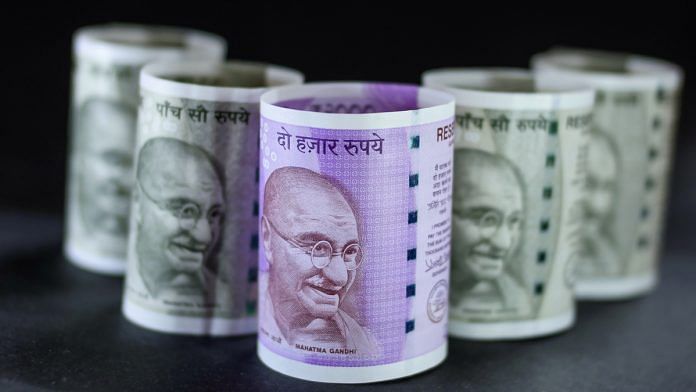Vedantic attachment and Islamic idolatry
Devdutt Pattanaik | Author
The Hindu
Pattanaik raises the following questions — “does the attachment of a section of Muslims to Babri Masjid lean towards idolatry?” or if it is a “fight for justice over a land dispute and a case of land grabbing stretched over decades”. He writes that according to recent genetic studies, “everyone in India is a migrant”, and therefore the question of who owns any land in this country becomes primary.
Pattanaik argues that in theory, “Islam is anti-idolatory” but in “practise, there is fetishisation of holy spots associated with saints and kings”. The same way, Hinduism “advocates detachment” in theory but in practise, “Hindus cling to temples and dead bodies of holy men”. He states that Babri Masjid, thus, “is not just a land dispute as atheists and material philosophers would love to imagine” rather it is “an assertion of faith”.
For Muslims “to accept the Supreme Court judgment is to accept the victory of idolaters” but in theory, “it is a problem”. Pattanaik argues that “plurality demands pragmatism” and the Hindus believe that “their fight for Ayodhya is essentially a fight of Hinduism’s survival in India”. He concludes by saying, “While Hindutva folks see this as real, non-Hindutva folks see this as paranoia.”
The debate of Parliament uniforms
Shumsher K. Sheriff | Secretary General, Rajya Sabha
Hindustan Times
On the first day of the winter session, “Rajya Sabha marshals were seen in a new uniform — blue, with shoulder insignia and peak caps among other additions — which resembled that of the armed forces”. Sheriff writes that he was not surprised by this news since “the demand for change of uniform by the marshals had been voiced by some, particularly regarding the headgear”.
He states that the “issue is not just of military uniform” rather it is “the desire to equate marshals with the dignity and authority that the army and police uniforms demand”. The “genesis of this issue goes back to the creation of this service to ‘watch and ward’” and over time, “demand for the ‘watch and ward’ unit to be treated as a security service with a specific profile and duties vis-a-vis the uniformed police grew”.
Sheriff, further, argues that the new uniform “emanated from the desire of the officers to seek recognition on par with the uniformed services for their discharge of duties”. Finally, he claims that the uniform can be changed but there is a need to “respect the Parliament and its stature, while at the same time, respecting the armed forces and their distinct space”.
The core of our manufacturing economy is staring at an abyss
Sandipan Deb | Former editor of Financial Express, founder-editor of ‘Open’ and ‘Swarajya’ magazines
Mint
Deb begins with an anecdote about an ‘Uncle M’, a small businessman that he is close to who, like many entrepreneurs in India, has had to shut down his business due to “complex and ever-changing tax regulations, and the onslaught of cheap Chinese products”.
He argues that Indian entrepreneurs are crucial to the Indian economy as they raise GDP, create jobs and help skill large chunks of the population. However, the GST system is “a complete mess” and often, “substantial working capital” of these businesses “is stuck in the form of unpaid GST claims”. Excess regulations and digitisation hiccups like poor tech-familiarity or server crashes and software malfunctions also play a role.
India’s move not to sign RCEP was right but “Chinese goods are [still] killing Indian enterprises, especially at the small and micro level”, he explains. Closure of small businesses reflects the “broken spirit” of these entrepreneurs and this is why the government needs to act fast, writes Deb.
Turning the economy around
Meghnad Desai | Prominent economist
Financial Express
Desai addresses the issue of whether the economic slowdown is part of a cycle that will reverse itself or if it will continue a downward spiral. To address it, he calls for bolder monetary policy, specifically fixing the availability of credit and lowering the cost of credit. For example, “drastic cuts in interest rates, and injecting liquidity on the supply side”, he writes.
Desai suggests that the “initiative of growing should be with the private sector, and the government can behave as an agent, using the price mechanism rather than direct transfer”. For this, there needs to be less contempt between businesses and the political class, he explains.
The government doesn’t trust the market mechanism and in turn, businesses harbour contempt for official rules and regulations, leading to the collapse of the non-banking credit market and the NPA crisis. Desai writes that these attitudes need to change so that the government “can behave as an agent” of growth stimulation to the private sector, by “using the price mechanism rather than direct transfer”.
Boost labour income to revive growth
Nitin Desai | Economist
Business Standard
Desai criticises the government’s recent policy changes to reviving the economy and writes that these have catered more to owners of capital — see corporate tax rate cut — instead of targeting ” the bottom half of income distribution” that can provide significant impetus for demand and growth.
Furthermore, the government’s “refusal to accept the accuracy of the employment report” and other valid but “uncomfortable data” is a concern. Desai compares KLEMS (Kapital, Labour, Energy, Materials, and Services) database to the Central Statistics Office (CSO) to show that the former is more reliable while the latter has underestimated growth rates during the UPA regime and overstated growth rates in the NDA years.
Other than declining rural wages, the deeper problem with the slowdown is “marketing reform, including in minimum support price and public procurement, will take much longer”, he writes. According to Desai, had the government enforced minimum wage legislation and provided more jobs under MNREGA, we may have seen a turn around by now.



